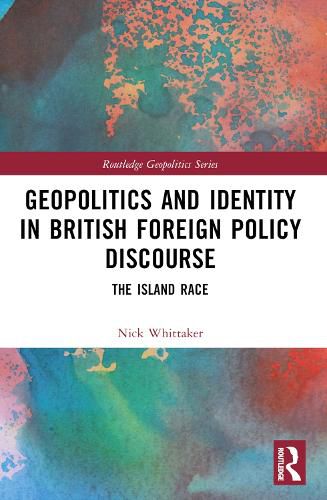Readings Newsletter
Become a Readings Member to make your shopping experience even easier.
Sign in or sign up for free!
You’re not far away from qualifying for FREE standard shipping within Australia
You’ve qualified for FREE standard shipping within Australia
The cart is loading…






This is the first book to examine Britain's geopolitical identity and how it is expressed in foreign policy discourse. It demonstrates how British imperial thought, related to its island status, has remained important for British Members of Parliament in their debates of contemporary issues.
It presents an exciting and provocative new reading of modern British foreign policy that decentres traditional notions of rationalism and pragmatism by foregrounding the much-neglected aspects of identity and geopolitical space. As British foreign policy-makers wrestle with how to define Britishness outside of the EU, this analysis provides a fresh perspective. It presents a much-needed historical contextualisation of long-standing concepts such as insularity from Europe and a universal aspect on world affairs.
This book will be highly relevant for students, researchers and professionals that are seeking to understand British foreign policy. It will be of interest to those researching and working within geopolitics, identity, sociology, foreign policy analysis and international relations.
$9.00 standard shipping within Australia
FREE standard shipping within Australia for orders over $100.00
Express & International shipping calculated at checkout
This is the first book to examine Britain's geopolitical identity and how it is expressed in foreign policy discourse. It demonstrates how British imperial thought, related to its island status, has remained important for British Members of Parliament in their debates of contemporary issues.
It presents an exciting and provocative new reading of modern British foreign policy that decentres traditional notions of rationalism and pragmatism by foregrounding the much-neglected aspects of identity and geopolitical space. As British foreign policy-makers wrestle with how to define Britishness outside of the EU, this analysis provides a fresh perspective. It presents a much-needed historical contextualisation of long-standing concepts such as insularity from Europe and a universal aspect on world affairs.
This book will be highly relevant for students, researchers and professionals that are seeking to understand British foreign policy. It will be of interest to those researching and working within geopolitics, identity, sociology, foreign policy analysis and international relations.